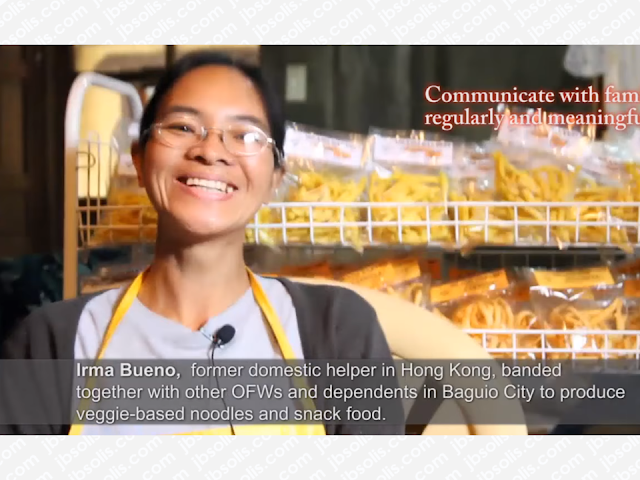In order to earn more and be successful, many Filipinos try their luck in finding jobs abroad thinking that it might be their best shot or it could be the biggest break they are waiting for. But do you know that there are overseas Filipino workers (OFW) who have found success just after they decided to come back and stay in the country for good? Yes. This only proves that working abroad is not a guarantee that you will be successful, likewise, staying in your country does not always mean that you cannot give the life that you desire for your family.
If you are already working abroad, the best thing to do is to start saving even a small amount for your retirement as early as today.
You can also seek assistance from the Overseas Workers Welfare Administration (OWWA), Department Of Labor And Employment (DOLE), Technical Education and Skills Development Authority (TESDA) and other government offices concerning OFWs.
If you are already working abroad, the best thing to do is to start saving even a small amount for your retirement as early as today.
You can also seek assistance from the Overseas Workers Welfare Administration (OWWA), Department Of Labor And Employment (DOLE), Technical Education and Skills Development Authority (TESDA) and other government offices concerning OFWs.
Advertisement
For a successful reintegration, OFWs must conquer their fear and fight their negative thoughts. In order to succeed, according to Myrna, a former OFW in Hong Kong who a CEO and President of a company based in Davao City, you must not fear about failure. In failing, the success will start because there is where learning begins.
For Kenneth Carredo, a former IT specialist in Thailand who is now a franchise owner of a leading spa massage chain in the country, coming home strengthens family ties even more compared to working away from them for a long period of time just to earn. Now he can give them what they want and most of all, a precious time together while earning.
Ads
Most OFWs are being tied off just wanting to earn bigger monthly income by working abroad. What they do not realize is that thay can actually earn as much or even better if they will start to maximize hat they earn while working abroad and make an investment or savings that will enable them to put up their own business and earn should they decide to finally come home for good.
One Crown Plaza in Guagua, Pampanga is owned by a former OFW who was working in Saudi Arabia as an assistant comptroller.
Miguel Bolos said that you must start learning about the business you want to put up not when you decided to go home for good but while you are still abroad. Do not waste your time and effort, instead, you must maximize your time in taking every opportunity to earn. That is how he found success.
For Irma Bueno, a former domestic worker in Hong Kong, regular communication with the family is important. She left her 11-month old baby to work abroad and on her first vacation, her kid was already 3 years old. When she arrived, her kid did not recognize her at all. It is sad that while she was doing the sacrifice of leaving her family behind and taking care of someone else's kids, her own kid does not know her. So she decided to stay and do business together with other OFWs.
Ronelyn Achacoso suffered abuse and maltreatment in Brunei. She picked herself up from the tragic experience and never worked overseas again. She is now the owner of Nelyn's handicraft which allows her to earn handsomely while enjoying the comfort of her home country away from the harm she went through in her former overseas job.
Putting up a business can be full of ups and downs but Ronelyn reminds the OFWs not to be discouraged.
Bong Clavel, a former boilermaker said that the success of his business depended on honesty and integrity. Considered as one of the largest businessmen in Alabel, Sarangani, he said that the secret is treating the customers and his workers well.
After working for 20 years as an engineer in Saudi Arabia, Antonio Ranque decided to come home for good and be a part of a cooperative which provide homes for the poor people. His advocacy is to extend help to people through cooperative.
Ads
There are many success stories of reintegration among the OFWs. The most important thing is that do not be afraid to come back and put up your business. you need to have a plan from the very first day of your deployment abroad. when the time is right and you have saved enough, its time to go home. you wouldn't want to spend your time away from your family and just come back when you are old and cannot enjoy life anymore. It is better to enjoy life with your family and loved ones.
Filed under Filipino, OFW, success, jobs abroad, retirement, OWWA, DOLE, TESDA,











